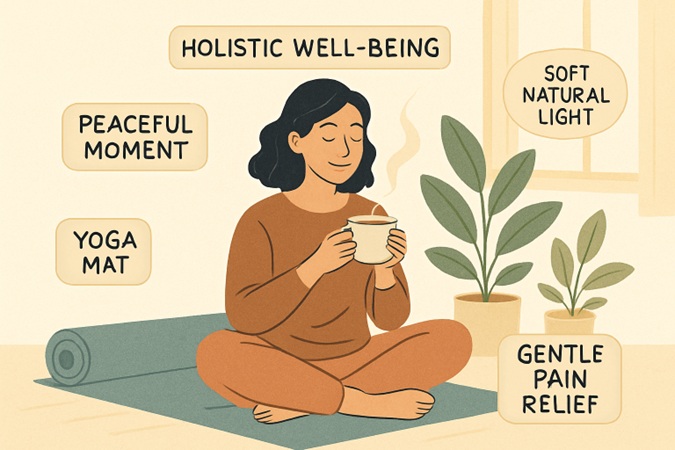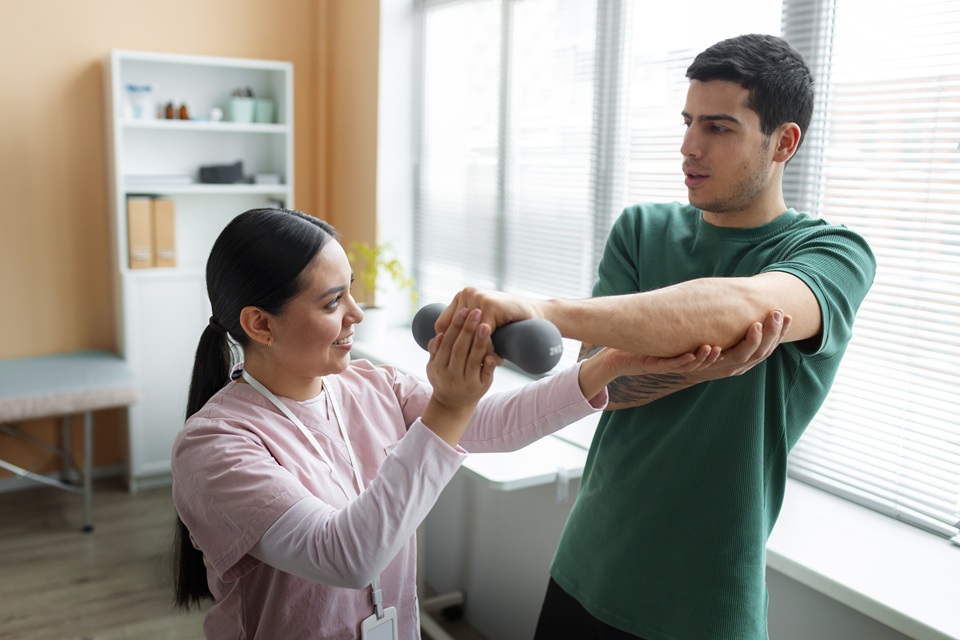Chronic pain is an ongoing challenge for millions of people, impacting daily routines, mood, and quality of life. As more individuals look for safe and effective alternatives to pharmaceutical solutions, holistic methods offer a promising avenue for relief. These approaches address pain’s physical, emotional, and mental components, guiding people toward sustainable healing. For individuals seeking immediate support, options like chair massage Denver blend hands-on techniques with stress relief, bringing holistic care within arm’s reach.
Holistic pain management acknowledges that pain is not solely a physical sensation but is intimately tied to mental and emotional well-being. From ancient practices to modern therapies, these integrative strategies create a personalized toolkit for anyone coping with persistent discomfort. By combining several approaches, individuals are better equipped to manage ongoing pain, prevent flare-ups, and enhance overall resilience.

Mind-Body Therapies
Techniques like meditation, yoga, and tai chi have been scientifically proven to lessen chronic pain by calming the nervous system. Practices such as mindfulness-based stress reduction (MBSR) can change the brain’s response to pain and reduce the psychological burden that comes with long-term conditions. Mindful movement and breathwork release tension and build awareness, often resulting in improved daily function and peace of mind.
Acupuncture
As a key element of Traditional Chinese Medicine, acupuncture aims to restore natural balance by targeting energy channels with thin needles. Research has shown that acupuncture stimulates the body to produce endorphins—nature’s painkillers—and improves circulation. This method is particularly beneficial for those dealing with migraines, arthritis, and neuropathic pain, helping many people find relief without adverse side effects.
Massage Therapy
Massage therapy addresses pain at its source by relaxing muscles, enhancing blood flow, and reducing stress hormones. Focused techniques like myofascial release or trigger point therapy can address specific areas of chronic discomfort, breaking the pain cycle and providing comfort. Routine massages can also improve sleep quality and immune response, making them an important tool for holistic pain management.
Diet & Nutrition
Nutrition plays a pivotal role in how we feel physically and emotionally. Anti-inflammatory foods such as leafy greens, berries, and walnuts help limit the body’s inflammatory response, which is often linked to conditions like arthritis or fibromyalgia. Avoiding sugary drinks and processed snacks can decrease pain and support overall wellness. Staying hydrated and focusing on natural, unprocessed foods provides a strong foundation for managing chronic pain daily.
Exercise & Movement
Movement, even in small amounts, can be transformative for people with chronic pain. Low-impact activities like swimming or gentle yoga help prevent further stiffness, increase circulation, and release feel-good endorphins. Tailored routines designed by physical therapists or fitness experts can gradually increase mobility and strength, making daily activities easier and reducing pain intensity over time.
Herbal Remedies
Herbal medicine offers promising pain relief for many individuals. For example, turmeric—which contains the compound curcumin—has notable anti-inflammatory properties and is often recommended for joint pain. Similarly, ginger, willow bark, and omega-3-rich oils from fish or flaxseed are used to manage inflammation and discomfort. However, it’s essential to seek guidance from knowledgeable practitioners to ensure safety and efficacy when mixing herbal remedies with other medications.
Aromatherapy
Aromatherapy uses essential oils to promote physical comfort and emotional calm. Oils like lavender and eucalyptus can be diffused, incorporated into baths, or used in topical applications for gentle relief and stress reduction. Integrating aromatherapy into daily routines fosters relaxation, supports better sleep, and can amplify the benefits of other pain management strategies.
Emotional Support & Counseling
Living with chronic pain is as much an emotional journey as a physical one. Addressing mental health is crucial because anxiety, depression, and isolation can amplify pain experiences. Access to counseling, cognitive-behavioral therapy (CBT), and peer support groups empowers individuals to better understand and cope with their challenges, building a foundation for resilience and improved well-being.
By embracing holistic approaches, individuals can create a compassionate, integrated pain management plan tailored to their needs, resulting in enhanced quality of life and a greater sense of well-being.
